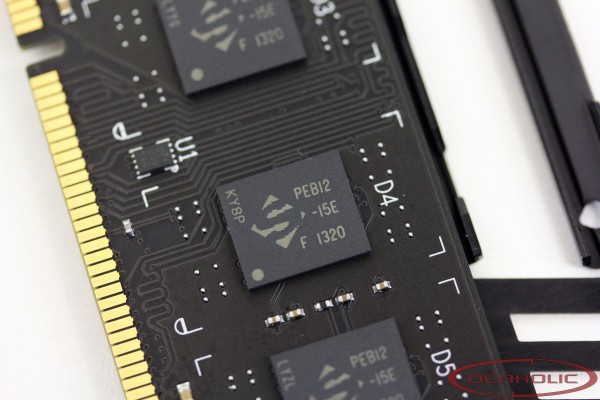D
Deleted member 214115
Guest
Recently my step father wanted a computer built for him. So, I configured a 4770 system, and purchased some Vengeance 1600MHz C9 RAM. After Windows was installed I paid attention to the POST screen and noticed the RAM was only at 1333MHz. I used the UEFI to check the SPD and noticed that the timings were JEDEC up to 1333MHz and that 1600MHZ was only capable when using the XMP; which has worse timings (C10/2T). I order a completely different set of Vengeance C10 RAM from Corsair and the same timings were configured; JEDEC 1333MHz (1T) and XMP1600MHz (2T).
Now the interesting thing is this. You pay for lower latency C9 RAM at 1600MHz but the memory can only be used in C10/2T timings! Only when the JEDEC 1333MHz SPD timing are used will the RAM be at C9 and 1T timings. I called Newegg, and spoke with a “Product Support” rep. He said all 1600MHz is configured this way on 1150 motherboards. I told him this is incorrect. There is a standard timing for 1600MHz and that the RAM is not true 1600MHZ supporting RAM. I also informed him of my Corsair RAM that I purchased for my 3770 about a few years ago is JEDEC 1600MHz C10 1T (XMP 1600MHz C10 2T), and is a perfect example of what I am arguing about.
He wanted me to flash the UEFI again, which is unnecessary. Even contact Asus for suport, which is not the root of the problem in my opinion. I informed him that the problem is the RAM and how it is configured to not be JEDEC 1600MHz RAM.
If my argument is correct I will NEVER buy Corsair products again; and neither should you. If I am wrong, then does the issue lie truly with Asus' firmware reading the SPD? But how can this be so if the SPD is configured as a lesser and not to JEDEC standards for 1600MHz?
Any rebuttals, thoughts?
Now the interesting thing is this. You pay for lower latency C9 RAM at 1600MHz but the memory can only be used in C10/2T timings! Only when the JEDEC 1333MHz SPD timing are used will the RAM be at C9 and 1T timings. I called Newegg, and spoke with a “Product Support” rep. He said all 1600MHz is configured this way on 1150 motherboards. I told him this is incorrect. There is a standard timing for 1600MHz and that the RAM is not true 1600MHZ supporting RAM. I also informed him of my Corsair RAM that I purchased for my 3770 about a few years ago is JEDEC 1600MHz C10 1T (XMP 1600MHz C10 2T), and is a perfect example of what I am arguing about.
He wanted me to flash the UEFI again, which is unnecessary. Even contact Asus for suport, which is not the root of the problem in my opinion. I informed him that the problem is the RAM and how it is configured to not be JEDEC 1600MHz RAM.
If my argument is correct I will NEVER buy Corsair products again; and neither should you. If I am wrong, then does the issue lie truly with Asus' firmware reading the SPD? But how can this be so if the SPD is configured as a lesser and not to JEDEC standards for 1600MHz?
Any rebuttals, thoughts?
![[H]ard|Forum](/styles/hardforum/xenforo/logo_dark.png)




